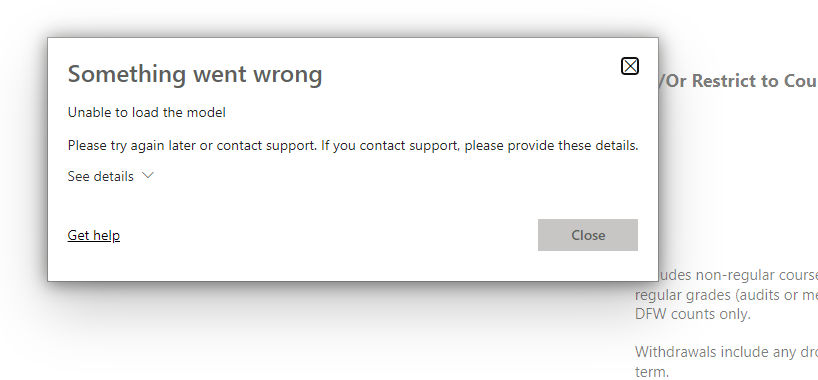Best RMM software for small businesses with limited IT staff? It’s a game-changer. Juggling daily operations while managing tech issues can feel like a never-ending uphill battle for small business owners. Limited IT staff means fewer hands to handle everything from network security to software updates. This guide cuts through the noise, helping you find the perfect RMM solution that streamlines your tech management, boosts efficiency, and ultimately, saves you time and money.
We’ll explore key features, cost considerations, security implications, and vendor support to help you make an informed decision.
From identifying your specific needs to understanding the crucial features of a robust RMM system, we’ll navigate the complexities of choosing the right software. We’ll also look at real-world examples, demonstrating how the right RMM can solve common IT headaches. Get ready to simplify your tech management and focus on what matters most: growing your business.
Cost and Scalability Considerations

Choosing the right RMM software for your small business involves careful consideration of both upfront and long-term costs, as well as the software’s ability to grow with your company. Understanding pricing models and potential hidden expenses is crucial to making an informed decision that won’t strain your budget.Pricing models for RMM solutions vary significantly, impacting your overall expenditure. A clear understanding of these models is vital for budgeting accurately and avoiding unexpected costs.
RMM Pricing Models
Different RMM vendors offer various pricing structures. Common models include per-device pricing, per-technician pricing, and tiered plans offering bundled features at different price points. Per-device pricing charges a fee for each device managed, making it suitable for businesses with a large number of endpoints but potentially expensive if you have few devices. Per-technician pricing charges based on the number of technicians using the software, which can be advantageous if you have a small IT team managing many devices.
Tiered plans offer various feature sets at different price points, allowing you to choose a plan that aligns with your current needs and budget. Some vendors also offer custom pricing for enterprise-level clients. Carefully compare the features offered at each price point to determine the best value for your money. For example, Atera offers a per-technician pricing model, while ConnectWise Manage uses a tiered plan structure.
RMM Scalability
The ability of your RMM solution to adapt to your business’s growth is paramount. As your company expands, so too will your IT infrastructure and the number of devices needing management. Choosing a scalable solution prevents the need for frequent software changes or upgrades as your needs evolve.
| RMM Solution | Pricing Model | Scalability | Suitable for |
|---|---|---|---|
| Atera | Per technician | Highly scalable; easily adds devices and technicians | Growing businesses with limited IT staff |
| ConnectWise Manage | Tiered plans | Scalable, but might require plan upgrades as needs grow | Businesses with predictable growth patterns |
| NinjaOne | Per device | Scalable, but costs increase proportionally with device count | Businesses with a large and growing number of devices |
| Datto RMM | Tiered plans | Highly scalable; offers various plans for different sizes | Businesses needing robust features and high scalability |
Determining License Requirements
Determining the appropriate number of licenses is crucial for cost management. This depends on several factors including the number of devices managed, the number of technicians, and the specific features required. A small business with 20 devices and one IT administrator might only need a single technician license and a plan covering 20 devices. However, a larger business with 100 devices and a team of three technicians will require more licenses and a higher-tier plan.
Begin by conducting a thorough inventory of your IT assets, considering future growth projections, and then select a plan accordingly. Most RMM vendors offer trials or consultations to assist with this assessment.
Hidden Costs of RMM Implementation, Best RMM software for small businesses with limited IT staff
While the initial cost of the software is important, hidden costs can significantly impact your budget. These include the time and resources needed for implementation, ongoing training for your IT staff, potential integration costs with existing systems, and the cost of any additional hardware or infrastructure required to support the RMM software. For instance, integrating the RMM with your existing ticketing system may require custom scripting or the services of a consultant.
Furthermore, ongoing maintenance and updates require dedicated IT resources or potential additional costs for outsourced support. Consider these hidden costs when budgeting for your RMM solution.
Illustrative Examples of RMM Software: Best RMM Software For Small Businesses With Limited IT Staff

Choosing the right RMM software can significantly impact a small business’s IT efficiency and security. The market offers various solutions, each with its strengths and weaknesses. Understanding these differences is crucial for making an informed decision. This section will examine three popular RMM options suitable for small businesses with limited IT staff.
Three RMM Software Solutions for Small Businesses
Let’s delve into three distinct RMM software solutions designed to meet the needs of small businesses: Atera, ConnectWise Manage, and Datto RMM. Each offers a unique set of features and caters to different business sizes and technical expertise levels.Atera is a cloud-based RMM solution known for its user-friendly interface and comprehensive features. Its pricing is generally affordable for small businesses, starting with plans suitable for managing a limited number of devices.
The platform offers remote monitoring and management capabilities, automated patching, ticketing systems, and reporting tools. Atera’s target user is the small to medium-sized business (SMB) owner or IT manager who needs a relatively easy-to-use and cost-effective solution. It’s ideal for businesses lacking extensive in-house IT expertise.ConnectWise Manage is a more comprehensive RMM solution that provides a broader range of features, including PSA (Professional Services Automation) capabilities.
This makes it suitable for businesses with more complex IT needs and larger teams. Pricing is higher than Atera, reflecting its increased functionality. ConnectWise Manage’s target user is the IT service provider or larger SMB with a dedicated IT department. Its robust features are best utilized by businesses with a greater need for workflow automation and project management tools.Datto RMM is a powerful RMM solution often favored by managed service providers (MSPs) due to its advanced features and scalability.
It offers robust monitoring, remote control, and automation capabilities, along with advanced security features. The pricing reflects its comprehensive capabilities and is typically higher than Atera and even ConnectWise Manage, making it more suitable for larger organizations or those with substantial IT budgets. Datto RMM’s target user is the MSP or large enterprise with sophisticated IT requirements and a significant budget for IT management.
Comparison of RMM Software Solutions
The following table compares the strengths and weaknesses of the three RMM solutions discussed above:
| Feature | Atera | ConnectWise Manage | Datto RMM |
|---|---|---|---|
| Ease of Use | High | Medium | Medium |
| Pricing | Low | Medium | High |
| Scalability | Medium | High | High |
| Features | Comprehensive, but less advanced | Very Comprehensive, includes PSA | Very Comprehensive, advanced features |
| Target User | Small businesses, limited IT staff | Larger SMBs, IT service providers | MSPs, large enterprises |
Hypothetical Scenario: Solving an IT Problem with RMM
Imagine “GreenThumb Gardening,” a small landscaping business with five employees and limited IT resources. They experience a sudden and widespread slow-down in their computers. Using Atera RMM, their IT consultant remotely diagnoses the problem as a malware infection affecting all devices. Atera’s automated patching feature is then used to deploy a security update to all affected machines, resolving the issue quickly and efficiently.
Furthermore, Atera’s reporting features provide insights into the infection’s origin, allowing preventative measures to be put in place to avoid future occurrences. The entire process is managed remotely, minimizing downtime and requiring minimal on-site intervention. This illustrates how an RMM solution like Atera can efficiently address IT challenges for a small business with limited IT staff.
Finding the best RMM software for small businesses with limited IT staff is crucial for efficient operations. Understanding the value of such investments mirrors the importance of measuring the ROI of a CRM system and demonstrating its value to stakeholders , as both streamline processes and boost productivity. Ultimately, selecting the right RMM solution directly impacts a small business’s bottom line, much like a well-implemented CRM.
Finding the best RMM software for small businesses with limited IT staff is crucial for efficient operations. Understanding the value of such investments mirrors the importance of measuring the ROI of a CRM system and demonstrating its value to stakeholders , as both streamline processes and boost productivity. Ultimately, selecting the right RMM solution directly impacts a small business’s bottom line, much like a well-implemented CRM.